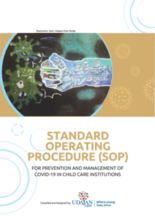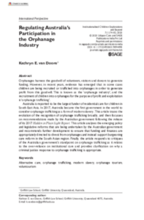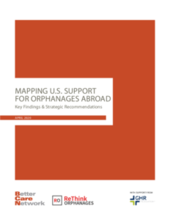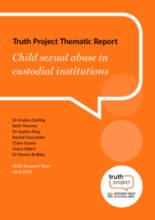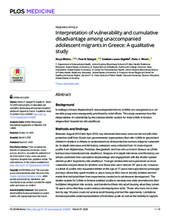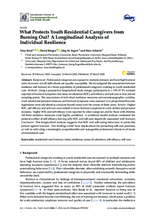Displaying 291 - 300 of 1511
This booklet from Udayan Care provides guidance on how to ensure the health, safety, and wellbeing of children in child care institutions in India during the COVID-19 pandemic.
This article traces the evolution of the recognition of orphanage trafficking broadly, and then focusses on recommendations made by the Australian government following the release of its 2017 Hidden in Plain Sight Report.
The research objective is to understand the development of collaboration in relation to the multiple issues that influence the educational attainment of youth in out-of-home care.
This report lays out the results of a preliminary mapping exercise to document the ways in which the United States supports and perpetuates overseas orphanages. It is based on: an analysis of existing data; a literature review of U.S government publications and investments; a review of non-profit organizations and foundation activities; an analysis of key supply chains and stakeholders; and the identification of existing data gaps.
This report describes the experiences of Truth Project participants who were sexually abused in custodial institutions in the UK between the 1950s and 2010s.
The current exploratory study is the first to look at the challenges and barriers in this transitional life stage of 23 Israeli Arab young adults, from their own perspectives, after leaving residential care.
The purpose of this study was to test the effectiveness and feasibility of a brief trans diagnostic Acceptance and Commitment Therapy (ACT) group intervention for youth with comorbid problems in residential care.
This study examines how the interpretation of vulnerability by the national shelter system for male UAMs in Greece shapes their trajectories into adulthood.
This study investigated the association between resilience and burnout in a Swiss population of professional caregivers working in youth residential care.
This guidance is to support the management of children and young people living in children's homes, residential special schools and colleges, and other residential facilities during the COVID-19 crisis.

